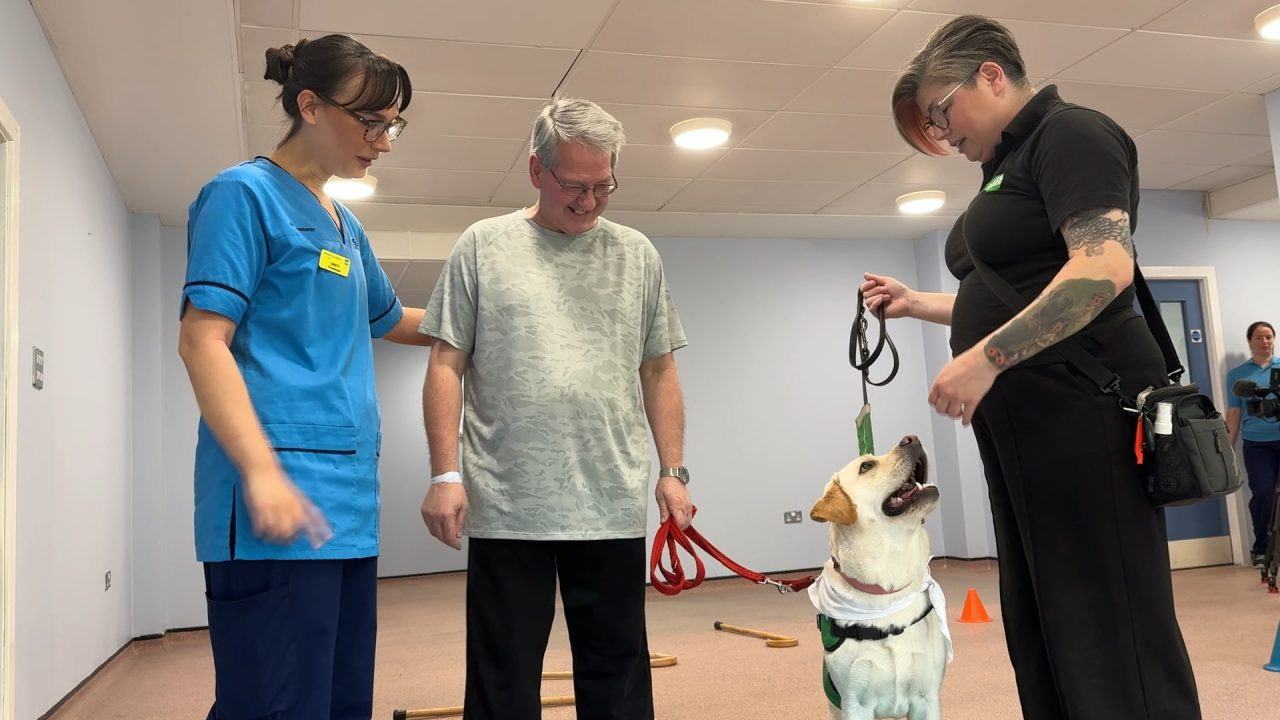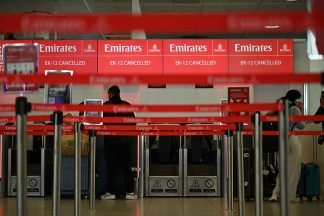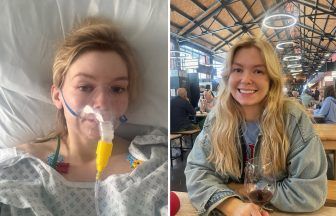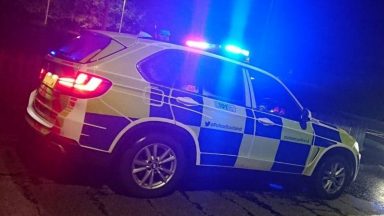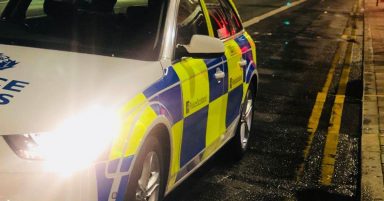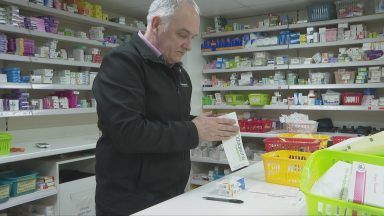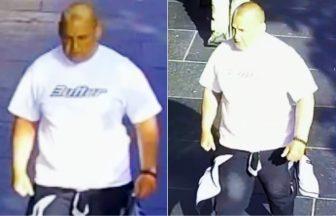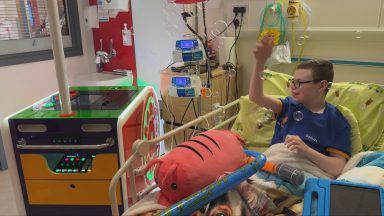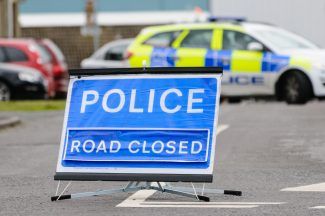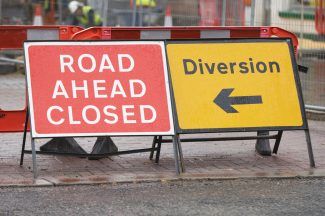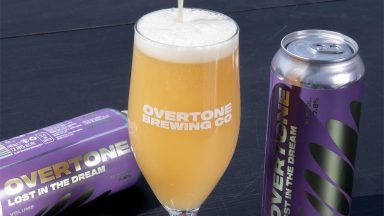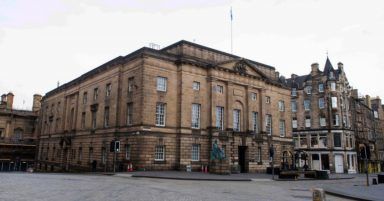Steven Mitchell collapsed in work from a stroke four weeks ago and has been rebuilding his strength step-by-step at Inverclyde Royal’s Larkfield Unit.
“The whole room was spinning,” he recalled. “I went down onto the floor and then the tingling started in my arm.”
He’s determined to get life back on track and is being helped to get there thanks to dogs Marcia and Billy.
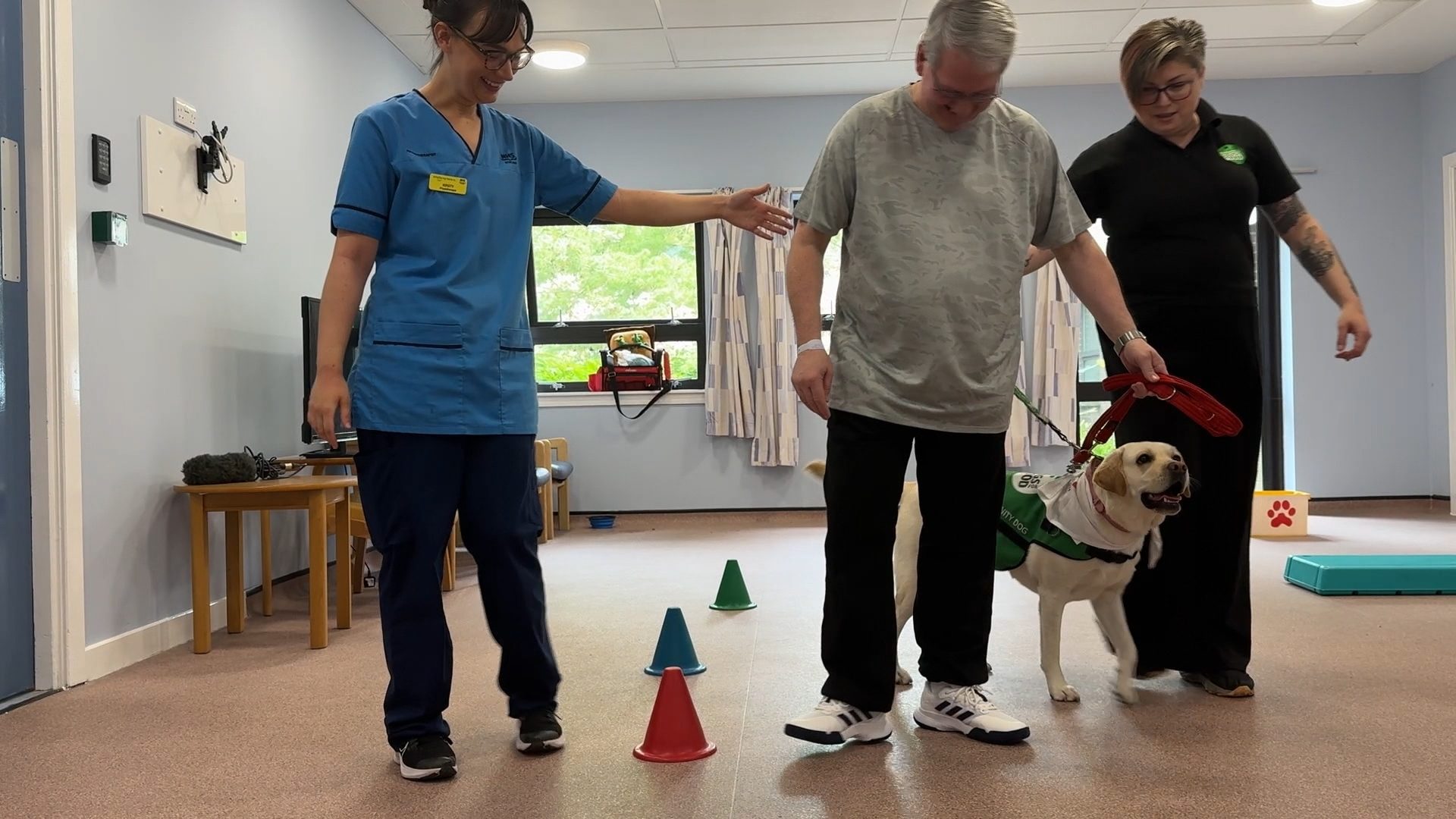 STV News
STV NewsOnce a week the charity Dogs For Good visit the ward to help stroke patients with their physiotherapy and cognitive responses.
The dogs take patients through a series of obstacle courses and games to help with balance, flexibility and strength.
“It’s nice to have a dog there,” said Steven. “It means you’re not just doing it on your own and it helps because you’re not thinking too much about what you’re doing – because sometimes I’m a bit robotic when I’m moving but now I’m just thinking about the dog.”
He added: “When I first stood up I just veered away to the right, I had no balance at all. Whereas now I’m almost walking normally.”
Another patient receiving care in the ward is Marjorie Crae, who suffered a stroke in March this year.
Each week Margorie plays a series of games with dogs like Marcia, picking up objects for her to fetch and collect.
Her husband John, who visits every day, said games with the dogs have helped to rebuild her strength.
“At the moment the stroke has affected the right side of her body,” said John.
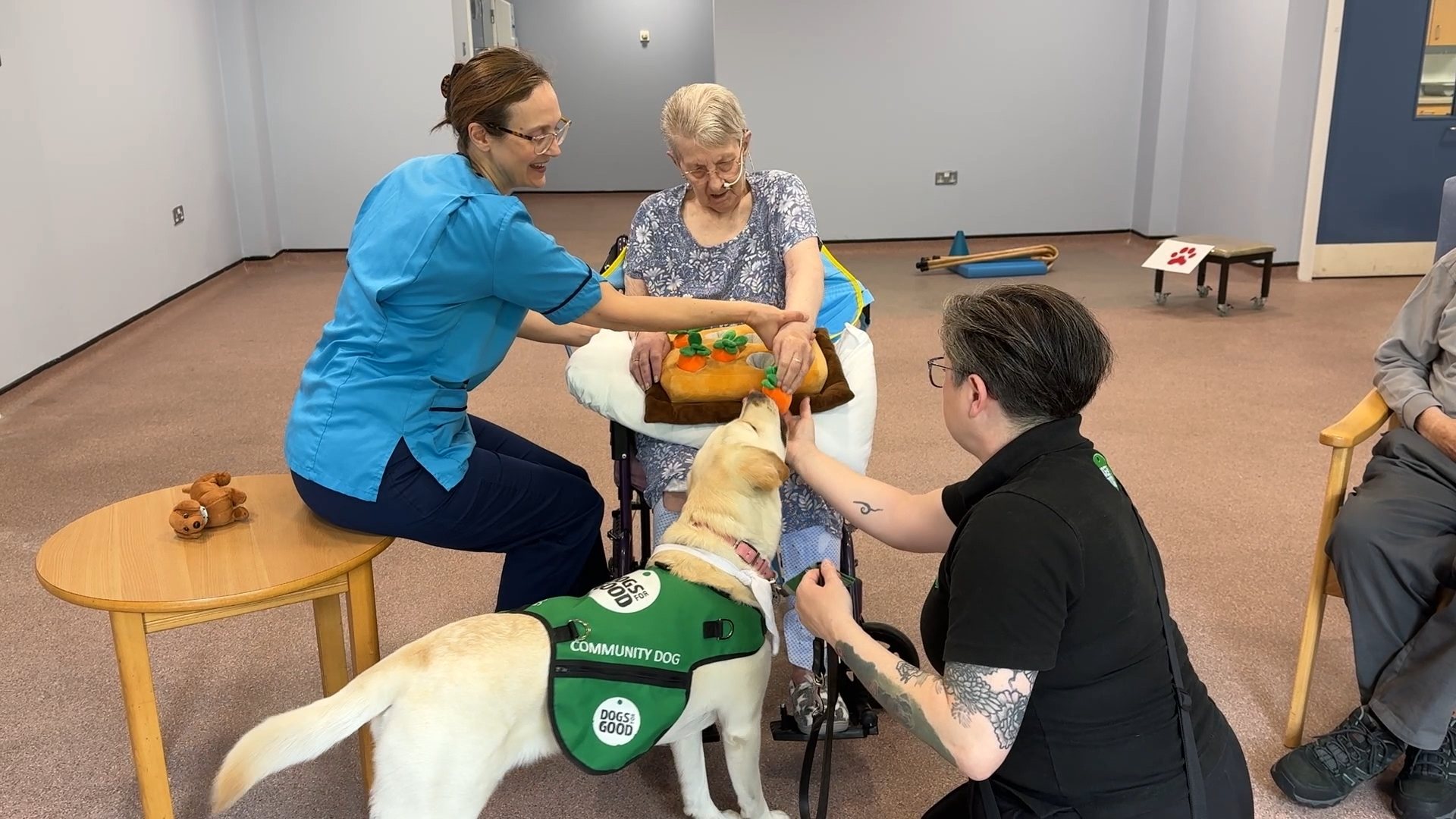 STV News
STV News“Games are strengthening her left side and hopefully in time her right side will respond to the work that the physiotherapists are doing.”
Neil Smith suffered a stroke four weeks ago and is currently trying to walk again with support from the physiotherapy team.
“I used to be someone who walked 10,000 steps a day,” he said. “I used to just get up and get out each morning.”
As part of his rehabilitation, he’s been working with labrador Billy from Dogs For Good, kicking a ball back and forth to help his movement.
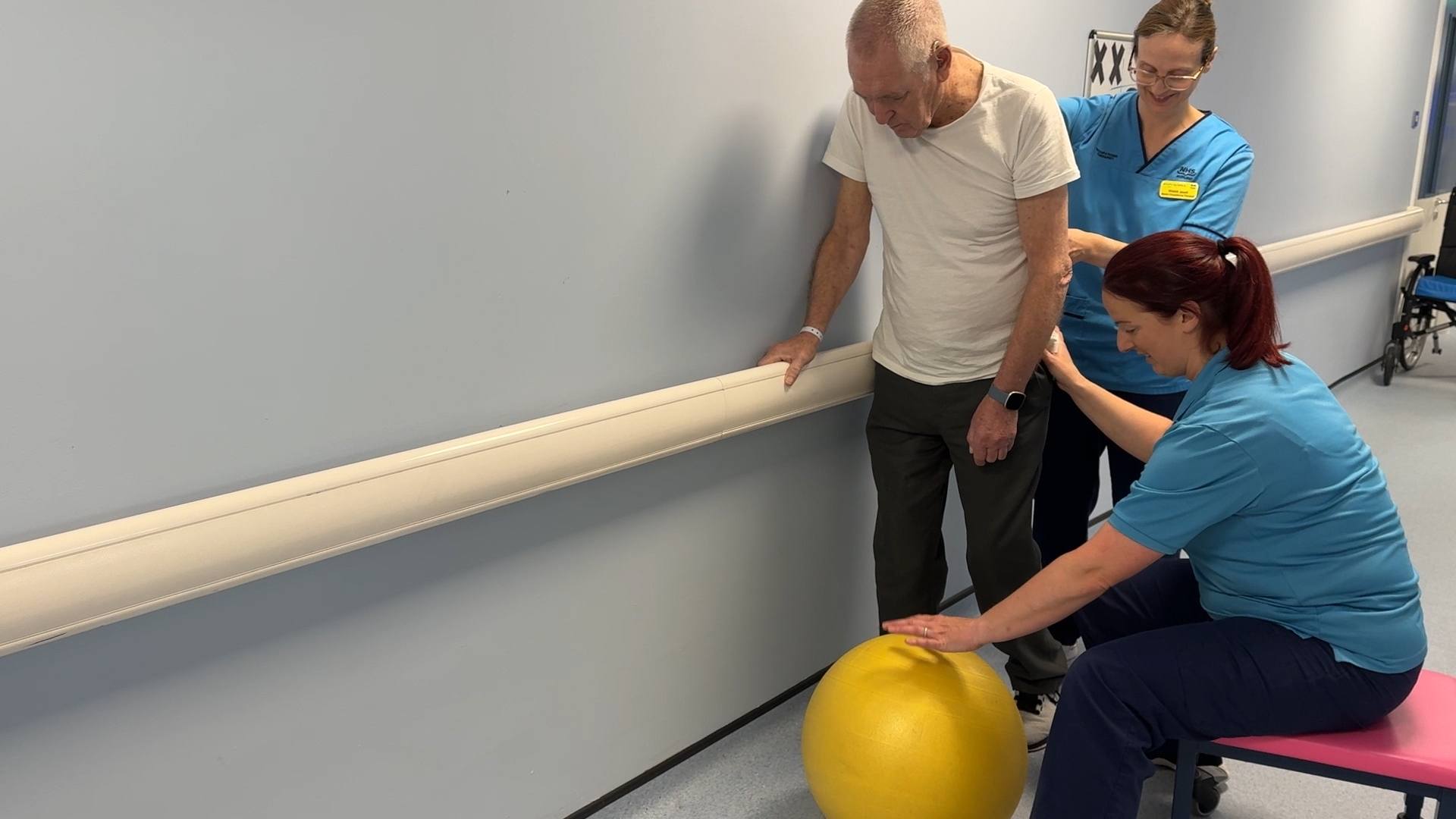 STV News
STV News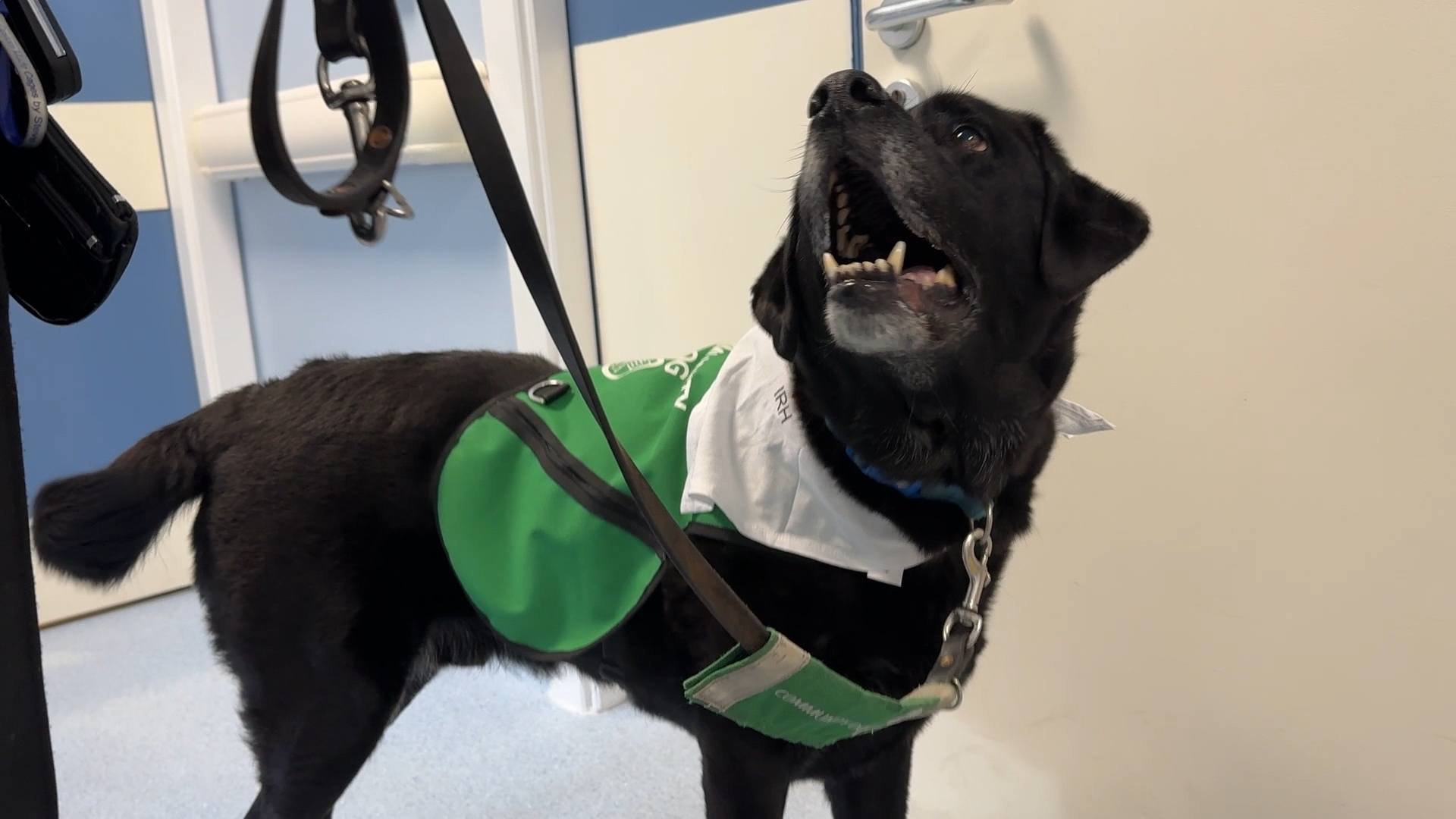 STV News
STV NewsDogs For Good work with families and communities to pair specially trained assistance dogs to support people with conditions including physical disabilities, autism and dementia.
Senior community dog practitioner Carla Haizelden said: “It’s really good for the dogs for their mental and physical wellbeing.
“All our dogs are bred and trained and selected because they enjoy the interactions with the people and because they enjoy the games and the work that they’re doing.”
She added: “It’s been really interesting from my point of view to see the different ways in which the dogs interact with different populations of people.
“With people with dementia and people here recovering from stroke, for the dogs its exactly the same – they get to interact with people and they get to play all these fun games that they love to play.
“But there are differences in the ways that we would encourage the dogs to engage with people or the activities that we choose to do.
“For example, here there’s more focus on movement and physicality.”
The charity approached NHS Greater Glasgow and Clyde about the partnership with the stroke ward – the first of its kind to be trialled.
After the eight week pilot project, the health board aim to review the results.
Alison Jardine, specialist stroke physiotherapist with NHSGGC, said: “It’s something so new, we’ve never done this before.
“We’re so happy to be given this opportunity. It’s given us a new way of thinking – how we work with patients, how we get the dogs involved.
“You can also see how excited the patients are, they know the days the dogs are coming in and they look forward to working with them.”
Follow STV News on WhatsApp
Scan the QR code on your mobile device for all the latest news from around the country


